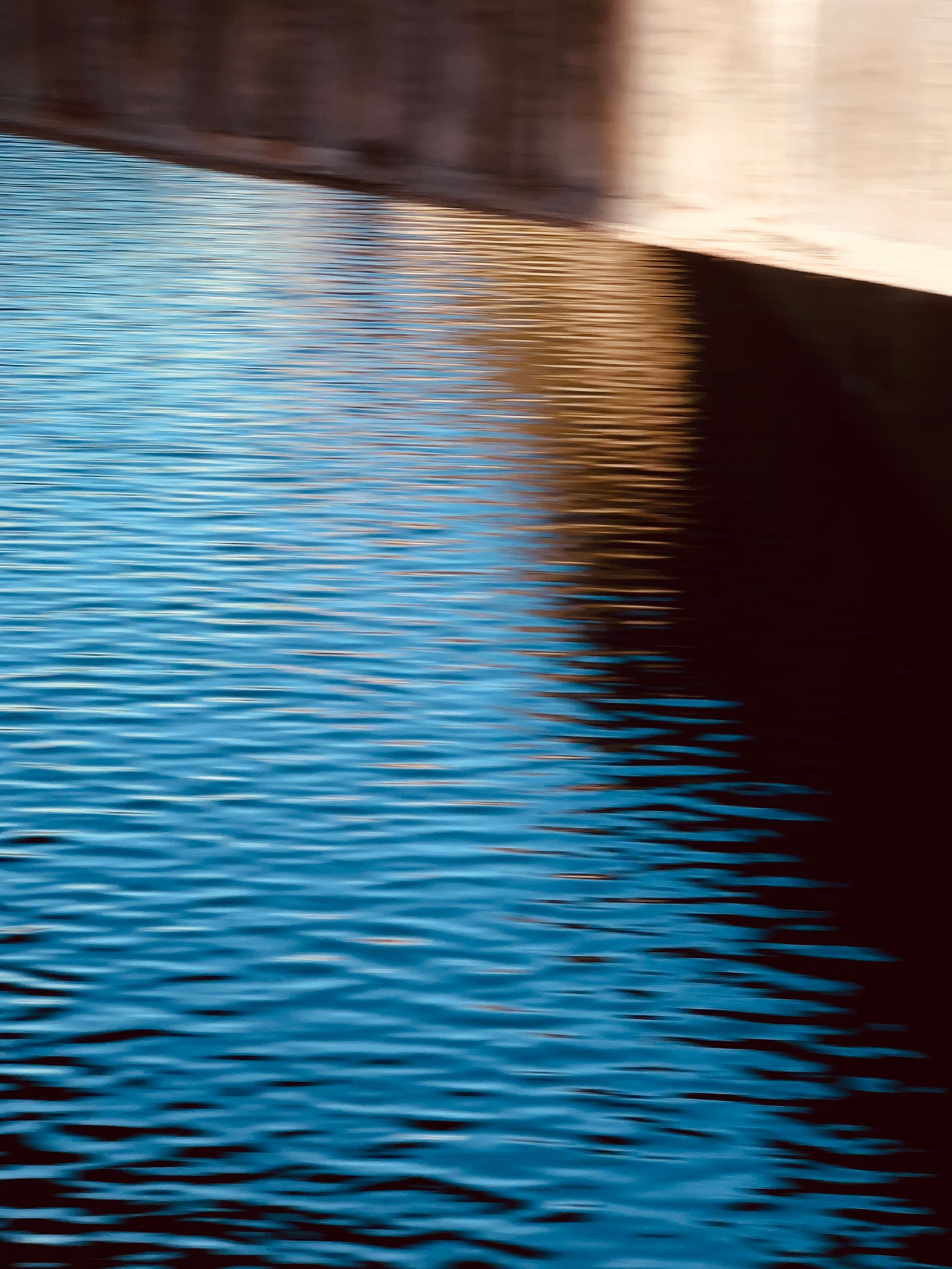Escape Within
This world is but a canvas to our imagination — Henry David Thoreau
I always plunge into the world of imagination when transitioning from December 31st to January 1st (I sleep through it). For this and many other reasons last year, after thoughtful consideration, I began a new tradition of truly starting my year sometime after the Chinese New Year. It feels like a more fitting green light—with its red dragon ushering in renewal, as spring marks fresh beginnings and the tax year winds down. But still, I don’t make New Year’s resolutions; instead, I reaffirm to myself the core principles I wish to continue following.

Why? Like Mark Twain, the American humourist, I believe that principles should guide us, but I don’t think they make us more effective, harmonious and prosperous simply because we declare them as NEW. Or perhaps we could say that Twain’s scepticism transcends mere cynicism and becomes a kind of devout faith in human folly itself.
In 1863, he wrote:
"Now is the accepted time to make your regular annual good resolutions. Next week you can begin paving hell with them as usual. Yesterday, everybody smoked his last cigar, took his last drink, and swore his last oath. To-day, we are a pious and exemplary community. Thirty days from now, we shall have cast our reformation to the winds and gone to cutting our ancient shortcomings considerably shorter than ever. We shall also reflect pleasantly upon how we did the same old thing last year about this time. However, go in, community. New Year’s is a harmless annual institution, of no particular use to anybody save as a scapegoat for promiscuous drunks, and friendly calls, and humbug resolutions, and we wish you to enjoy it with a looseness suited to the greatness of the occasion."
I would perhaps wish myself to be at least 100 per cent less optimised, functional, streamlined, expedient, or self-actualised (well noted: I’ve been trying to avoid the words cynical and ironic) than last year—but let’s be honest, I can’t pretend to have shed it all at once. I admit I occasionally and periodically (once a year, to be precise) watch Mr. Bean, Scandinavian stand-up (once a month), and read absurd jokes (weekly). But more than anything else, I abundantly, repeatedly and unpliably still laugh at myself. An example from not long ago is when I was absolutely distraught upon discovering that one of Einstein’s theories had been disproven by new research (well, 2017, so not that new). Since then, I’ve promised to become more regular at checking on Nobel Prize laureates—just in case my reality is ever proven nonexistent!
But on a more serious note, this time of year is about renewal and fresh starts (not only in a financial sense). After all, we all know that the secret of happiness is a good sense of humour and a bad memory, and the trouble begins when they shuffle…
Gilbert K. Chesterton once wrote:
"The object of a New Year is not that we should have a new year. It is that we should have a new soul and a new nose; new feet, a new backbone, new ears, and new eyes. Unless a particular man made New Year resolutions, he would make no resolutions. Unless a man starts afresh about things, he will certainly do nothing effective."
Far from plastic surgery manifestations, most evenings, I ask myself: Are you living up to your principles? Are you the person you claim to be?
Some days, the answers are clear. Other days, not so much. Recently, I started asking myself different questions: Did you create something beautiful today? Did you ship your work? It’s an exciting way to set intentions without knowing exactly where the path will lead or where I may end up.
Arthur Koestler captures this process beautifully in his book The Act of Creation:
"The creative act is not an act of creation in the sense of the Old Testament. It does not create something out of nothing; it uncovers, selects, re-shuffles, combines, synthesizes already existing facts, ideas, faculties, skills. The more familiar the parts, the more striking the new whole."
This kind of questioning isn’t about an external voice of judgment but rather about a deeper knowing—about recognising what I need to do.
I occasionally conceive of this endeavour as a dual act of deconstruction and reconstruction, methodically dismantling the framework of my past, and allowing the fragments to settle as they might with an unyielding willingness to immerse myself fully in the experience, regardless of the risk of plummeting completely into the depths of the unknown. Koestler delineates this phenomenon as self-transcendence: The more improbable the connection, the more insightful.
"This world is but a canvas to our imagination."
Thoreau’s words were not written in the flurry of modern resolutions but in the stillness of Walden Pond, where he sought to strip life to its essence. He saw nature as a vast, untamed canvas waiting for human consciousness to leave its mark.
Boundaries, whether of time, tradition, or self-perception, are but lines drawn in the sand, shifting with the winds of our own vision.
"Time is a river which sweeps me along, but I am the river; it is a tiger which destroys me, but I am the tiger; it is a fire which consumes me, but I am the fire."
— Jorge Luis Borges
Creativity is not a regimented march toward a fixed ideal; it is a wandering, intuitiveness, picturing out without analysing, rejection of stiff precision in favour of possibility. The great masters knew this: Da Vinci’s notebooks teem with sketches of flying machines he would never build, and Cézanne painted Mont Sainte-Victoire over and over, never capturing it in finality but in essence.
Each year, whenever we choose to commence it, each day is not a rigid agenda filled with predetermined goals but an open field where we choose the shape of our own footprints. And if this world is truly a canvas for our imagination, then the only question left is—how daring will we be with our brush?

Let me conclude with three evocative quotes:
"I admit that twice two makes four is an excellent thing, but if we are to give everything its due, twice two makes five is sometimes a very charming thing, too." F. Dostoyevsky, "Notes From Underground" (1864)
"What would life be if we had no courage to attempt anything?"
— Vincent van Gogh in a letter to his brother Theo in March, 1882.
"The beginning is always today."
— Mary Shelley
Have a courageous week ahead.
Anna
If you enjoy reading about artists, you might want to check out the interviews with:
or/and




